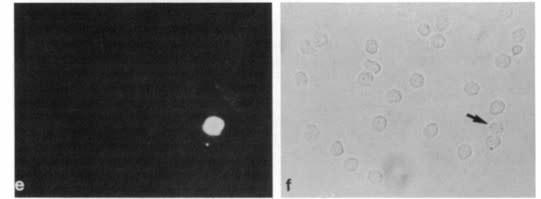
Cat. #151630
PDVC57B Cell Line
Cat. #: 151630
Sub-type: Continuous
Unit size: 1x10^6 cells / vial
Availability: 10-12 weeks
Organism: Mouse
Disease: Cancer
Model: Tumour line
£575.00
This fee is applicable only for non-profit organisations. If you are a for-profit organisation or a researcher working on commercially-sponsored academic research, you will need to contact our licensing team for a commercial use license.
Contributor
Inventor: Allan Balmain
Institute: Cancer Research UK, Glasgow: The Beatson Institute
Tool Details
*FOR RESEARCH USE ONLY (for other uses, please contact the licensing team)
- Name: PDVC57B Cell Line
- Cancers detailed: Carcinoma Squamous Cell
- Research fields: Apoptosis and autophagy;Cancer;Cell biology;Drug development;Genetics
- Tool sub type: Continuous
- Parental cell: PDV
- Organism: Mouse
- Disease: Cancer
- Growth properties: Mouse spindle cell carcinoma, Adherent
- Model: Tumour line
- Description: The PDVC57B Cell Line is useful for the study of the progression of carcinogenesis and as a model of relapse after surgery. PDVC57B is syngeneic for C57B1/6 mice and carries a p53 mutation in codon 231, (ATG-GTC) and an A-T tranversion at cod 61 of the H-ras gene. These events appear to be remarkably similar to the sequence of changes seen during tumour development in vivo.
- Production details: The transformed PDVB57B was created by treating the PDV cell line with the carcinogen DMBA.
- Cellosaurus id: CVCL_4271
Target Details
- Target: PDVC57b
Handling
- Format: Frozen
- Growth medium: DMEM + 2mM Glutamine + 10% Foetal Bovine Serum (FBS).
- Unit size: 1x10^6 cells / vial
- Shipping conditions: Dry ice
- Storage conditions: Vapor phase of liquid nitrogen. Storage at -70° C will result in loss of viability.
- Subculture routine: Split sub-confluent cultures (70-80%) 1:5 to 1:10 i.e. seeding at 1-5x10,000 cells/cm² using 0.05% trypsin or trypsin/EDTA; 5% CO₂; 37°C
References
- Oakley et al. 2002. Clin Cancer Res. 8(6):1984-1994. PMID: 12060644.
- Quintanilla et al. 1991. Carcinogenesis. 12(10):1875-1881. PMID: 1934268.


![Anti-CAR Whitlow Linker [1C3C3]](https://cancertools.org/wp-content/uploads/Figure-6-Kimble-et-al.-J-Immunother-Cancer-2025-300x322.jpg 300w, https://cancertools.org/wp-content/uploads/Figure-6-Kimble-et-al.-J-Immunother-Cancer-2025-280x300.jpg 280w, https://cancertools.org/wp-content/uploads/Figure-6-Kimble-et-al.-J-Immunother-Cancer-2025-954x1024.jpg 954w, https://cancertools.org/wp-content/uploads/Figure-6-Kimble-et-al.-J-Immunother-Cancer-2025-768x824.jpg 768w, https://cancertools.org/wp-content/uploads/Figure-6-Kimble-et-al.-J-Immunother-Cancer-2025.jpg 1193w)

